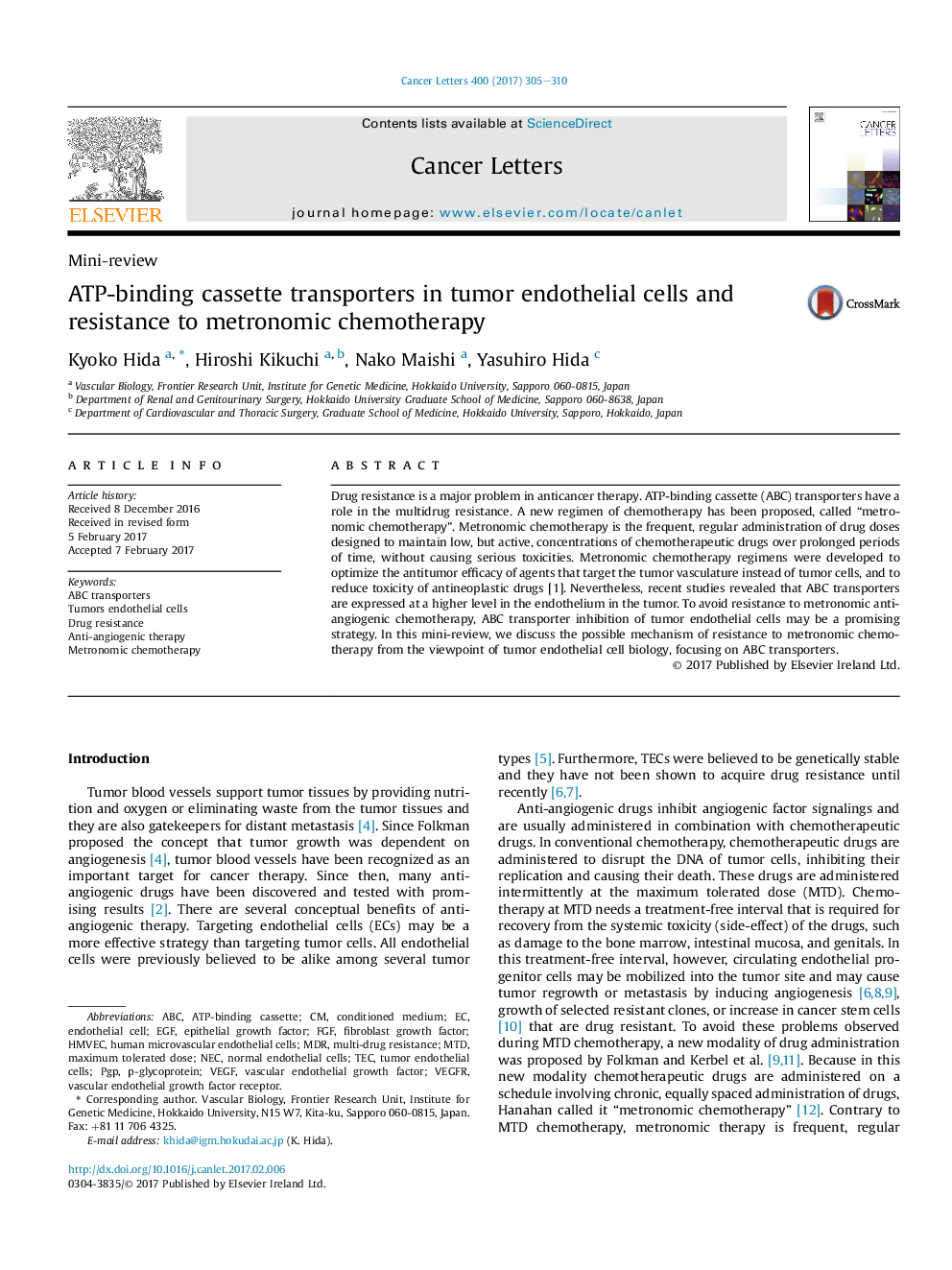| Article ID | Journal | Published Year | Pages | File Type |
|---|---|---|---|---|
| 5525533 | Cancer Letters | 2017 | 6 Pages |
â¢ATP-binding cassette (ABC) transporters are major cause of drug resistance.â¢ABC transporters are expressed not only in tumor cells but also in tumor endothelial cells.â¢ABC transporters in tumor endothelial cells may be a part of resistance to metronomic chemotherapy.â¢Inhibition of ABC transporters may be promising strategy in metronomic chemotherapy.
Drug resistance is a major problem in anticancer therapy. ATP-binding cassette (ABC) transporters have a role in the multidrug resistance. A new regimen of chemotherapy has been proposed, called “metronomic chemotherapy”. Metronomic chemotherapy is the frequent, regular administration of drug doses designed to maintain low, but active, concentrations of chemotherapeutic drugs over prolonged periods of time, without causing serious toxicities. Metronomic chemotherapy regimens were developed to optimize the antitumor efficacy of agents that target the tumor vasculature instead of tumor cells, and to reduce toxicity of antineoplastic drugs [1]. Nevertheless, recent studies revealed that ABC transporters are expressed at a higher level in the endothelium in the tumor. To avoid resistance to metronomic anti-angiogenic chemotherapy, ABC transporter inhibition of tumor endothelial cells may be a promising strategy. In this mini-review, we discuss the possible mechanism of resistance to metronomic chemotherapy from the viewpoint of tumor endothelial cell biology, focusing on ABC transporters.
